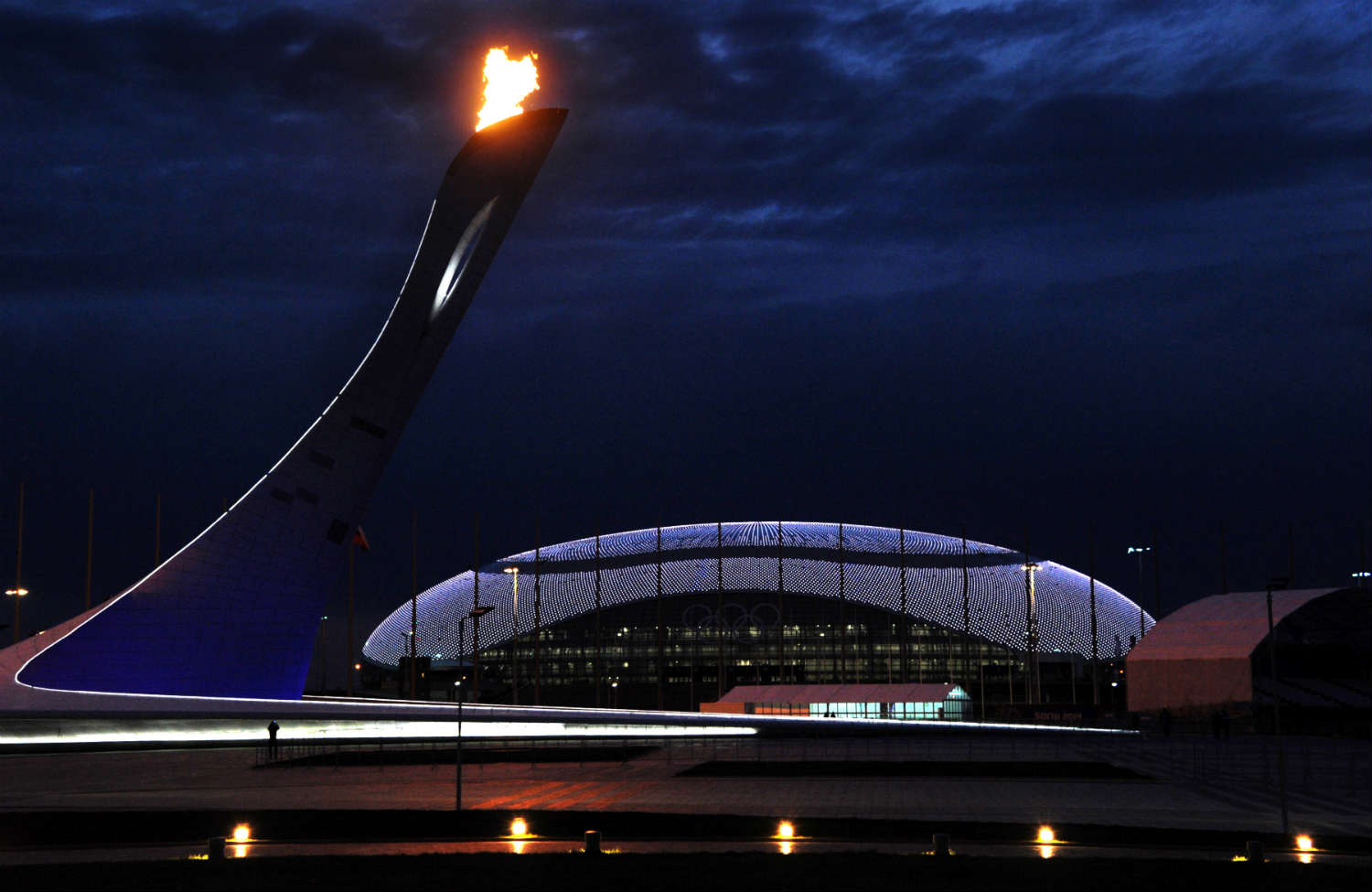
Olympic officials will be watching wearily as Russia puts on the finishing touches to the Sochi Winter Olympics, set to begin on Feb. 7. Though the build-up to most mega-sporting events like the Olympics usually involves some kind of controversy, since being awarded the Games by the International Olympic Committee (IOC) back in 2007, Putin’s pet project by the Black Sea has been overshadowed by fears of terrorism, a crackdown on civil society, persecution of homosexuals and claims of environmental damage to one of Russia’s most ecologically valuable regions.
As part of its bid, Russia told IOC members it would be staging a “zero waste” Games that followed green building standards. This was a huge challenge: organizers had to build infrastructure to host 88 other competing countries, the world’s media and hundreds of thousands of spectators in an underdeveloped region that was home to a UNESCO World Heritage site and a national park. Sochi organizers pushed ahead with their green theme, working with the United Nations Environment Program (UNEP) to review construction progress, issuing interim sustainability reports measuring their environmental impact and devising an environmental strategy that promised to deliver the Games “in harmony with nature.”
Instead, Sochi organizers have failed on all their green promises, says Suren Gazaryan, a zoologist and member of the environmental campaign group Environmental Watch of the North Caucasus (EWNC). Speaking with TIME from Estonia, where he is currently living in exile thanks to criminal charges levied against him by Russian authorities for his human rights work in 2012, Gazaryan explained that the construction process for the Games has been hugely damaging for the region. He and the ENWC have documented evidence of illegal waste dumping, construction that has blocked the migration routes of animals such as the brown bear, limited access to drinking water for locals and a generally decreased quality of life for many in the city of Sochi.
(MORE: The Rock That Clobbered Russia: Meteor Post Mortem)
“The most dangerous and important part of the damage is the biodiversity lost in the area,” says Gazaryan. “Parts of the national park have been completely destroyed. This area was the most diverse in terms of plant and animal life in Russia.” There is also the added danger of increased landslides, mudflows and building collapses as a result of poor construction and hazardous waste dumping practices, says Gazaryan. Sochi organizing officials did not respond to TIME’s request for comment on the apparent environmental damage.
Simon Lewis, who runs Team Planet, a U.K.-based consultancy on sustainability in sport, says Sochi organizers already had their work cut out for them. Hosting a Winter Games is often more challenging from an environmental perspective than hosting the Summer Games: “If you look at the environmental footprint of hosting a Games–including things like travel, construction and hospitality–doing that halfway up a mountain in what is often a delicate and pristine environmental habitat is going to be difficult,” he says. The IOC and UNEP worked with organizers to help mitigate some aspects of the construction, including relocating some sporting venues away from the borders of the UNESCO World Heritage Site. Despite this, says Lewis, “Sochi should never have happened in that location. It was a poor decision by IOC members based on poor information.”
(MORE: Climate Change Could Melt the Winter Olympics)
Some IOC members have admitted as much. Els van Breda Vriesman, a 72-year-old Dutch former IOC member who voted for Russia’s bid in 2007, told the Dutch broadcaster NOS in January that had the votes been cast today, many members would not have chosen Sochi. She added that when it came to voting, some members didn’t see the environment as important, despite “the fact that the IOC is so committed to the environment.”
Lewis explains that the IOC has pushed hard to make the environment a key pillar of the Olympics movement, tracing its efforts back to the early 1990s and lauding its environmental achievements with the Sydney Summer Olympics in 2000. But Sochi will be seen as a blot on this record, he adds. In an email to TIME, Emmanuelle Moreau, head of media relations for the IOC, writes that the organization has been aware of the environmental complaints put forward by NGOs, but notes that Russia’s green efforts needed to be considered against its local context: “The Sochi 2014 Games are believed to be the first global sports events in Russia to have taken environmental concerns and the principles of sustainability into consideration.” Moreau also points out that Sochi will be the first Games in history to attempt to mitigate the carbon footprint of athletes, spectators and media representatives attending the event.
Gazaryan is cynical about whether the unresolved environmental concerns will receive much attention once the spectacle of Games gets underway next week, but like Lewis, he believes that the IOC needs to reconsider how it ensures sustainability standards are met in future. Given Russia’s hopes of making Sochi a global ski destination after the Games—which would open up a sensitive national park region to increased tourist traffic—it seems unlikely that its environmental legacy is one the IOC will be shouting too loudly about in the years to come.
More Must-Reads from TIME
- How Donald Trump Won
- The Best Inventions of 2024
- Why Sleep Is the Key to Living Longer
- Robert Zemeckis Just Wants to Move You
- How to Break 8 Toxic Communication Habits
- Nicola Coughlan Bet on Herself—And Won
- Why Vinegar Is So Good for You
- Meet TIME's Newest Class of Next Generation Leaders
Contact us at letters@time.com